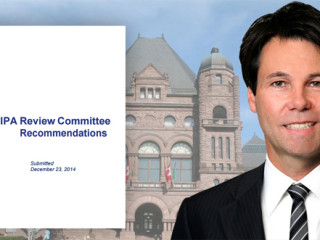Full Decision
Insurers’ mere boilerplate reasons for denying treatment will no longer suffice in light of this Licence Appeal Tribunal (“LAT”) decision, which was upheld on appeal.
Brian Hedley was injured in a motor vehicle accident and submitted two occupational therapy treatment and assessment plans to his insurer, Aviva. Section 38(8) of the SABS requires insurers to respond to a claimant’s treatment and assessment plan within 10 days. If the insurer thinks any part of the treatment and assessment plan is not “reasonable and necessary”, it must provide “the medical reasons and all of the other reasons why the insurer considers any goods, services, assessments and examinations, or the proposed costs of them, not to be reasonable and necessary.”
Aviva denied the treatment, writing that they were “unable to determine whether the recommendations are reasonably required for the injuries you received in this motor vehicle accident.”, and scheduled an insurer’s examination. In a box labelled “Medical Reason”, Aviva wrote “The type(s) of treatment does not appear consistent with the patient’s diagnosis.” Mr. Hedley repeatedly asked Aviva to clarify its reasons, but no clarification was provided. Because of this, Mr. Hedley refused to attend the insurer’s examination and commenced an application before the LAT.
Initially, the LAT adjudicator ruled in favour of Aviva. On reconsideration, Executive Chair Linda Lamoureux cancelled the Tribunal’s decision on the basis that it involved a “significant error of law”. She found that Aviva’s sparse reasons raised obvious questions concerning what medical information was relied on to make its determination and what, specifically, was the inconsistency between the information and the recommended treatment. She also found that the benefits and assistive devices were entirely consistent with Mr. Hedley’s diagnosis of back pain. In her view, the Adjudicator’s interpretation of Aviva’s obligation under s. 38(8) would “essentially allow an insurer to justify any denial of a plan by merely stating that it had reviewed the plan in light of the medical documentation on file, and without providing any meaningful detail, assert that the plan was not appropriate given the insured’s condition.” Such interpretation would run counter to the SABS’ consumer protection objective.
Aviva appealed to the Divisional Court, but the appeal was dismissed in a unanimous decision. The Divisional Court cites the decision of the Ontario Court of Appeal in Turner v. State Farm Mutual Automobile Insurance Co. [2005 CarswellOnt 381 (Ont. C.A.)], which makes it clear that that where reasons are required, they must be meaningful in order to permit the insured to decide whether or not to challenge the insurer’s determination. Mere “boilerplate” statements do not provide a principled rationale to which an insured can respond. In essence, such statements constitute no reasons at all. Therefore, the Divisional Court determined that based on the governing legal principles and evidence before her, Executive Chair Lamoureux’s decision was within the range of reasonable outcomes and should stand.













